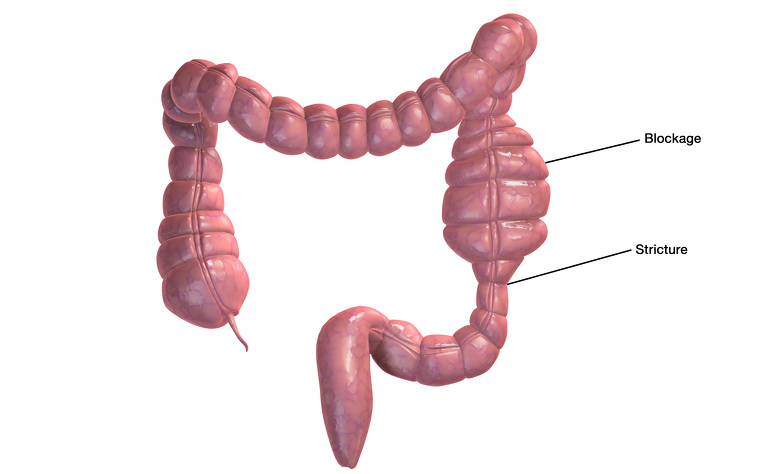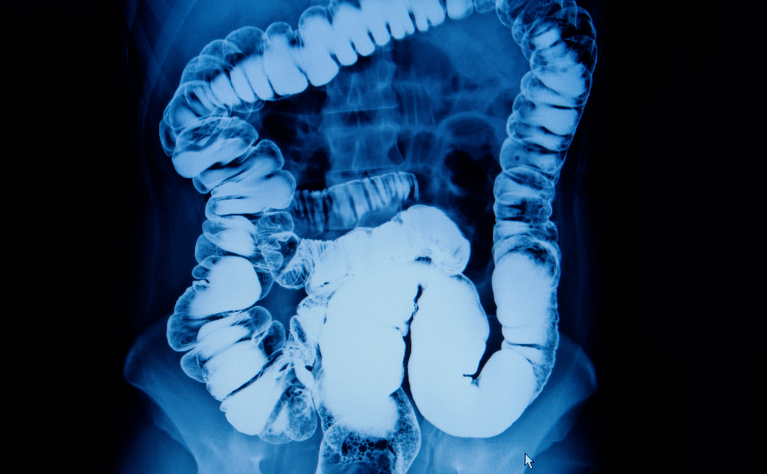Find this article useful?
Why not sign up to our mailing list and receive regular articles and tips about IBD to your inbox.

Intestinal strictures are narrowings in the bowel which are more common in people with Crohn's disease than ulcerative colitis.
Intestinal strictures are essentially narrowings in the intestine which can make it difficult for food matter to pass through.
Strictures can be mild or severe and in the most severe cases can lead to a complete blockage, meaning no food or fluid can pass through that part of your intestine. If this happens emergency surgery is needed to allow free passage for food and drink again.
Strictures tend to happen more commonly in Crohn’s disease, although strictures can occasionally occur in people who have ulcerative colitis.
Strictures happen when scar tissue builds in the wall of the large or small intestine. This scar tissue occurs as a result of long periods of inflammation caused by Crohn’s disease. The inflammation can cause damage which when it then repairs leads to scar tissue. The building up of scar tissue in the same place can then cause strictures. If there is also swollen (inflamed) tissue in the area it can contribute to the narrowing.
If you have a mild stricture you may not experience any symptoms if it is not slowing down or stopping the passage of food.
If a stricture does slow down food you may experience:
If the stricture causes a full or near blockage then food and liquid may not be able to pass through at all. In these cases you may experience:
If you are experiencing these symptoms then you should go to hospital immediately.
If a stricture is suspected then the following tests may be used to diagnose it:

The treatment for intestinal strictures depends on the severity of the narrowing and what the cause is thought to be.
If the stricture is mild and swollen tissue is a contributing factor then the treatment may be to try to reduce inflammation through medication, while making changes to diet by avoiding high fibre foods which may be harder to pass through. Chewing food well before swallowing and blending food may also be suggested.
For moderate strictures which can be viewed using an endoscope the treatment may be to stretch the intestine during an endoscopy. During the treatment a balloon is used at the end of the endoscope to stretch the section of intestine. This is known as endoscopic balloon dilation. If this procedure doesn’t work, or doesn’t last long after being done, then surgery may be required.
Where surgery is required a strictureplasty or resection may be carried out.
Strictureplasty procedures and resections are the two most common types of surgery carried out on people with Crohn’s disease.
Why not sign up to our mailing list and receive regular articles and tips about IBD to your inbox?